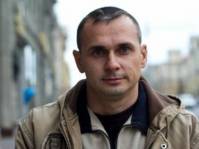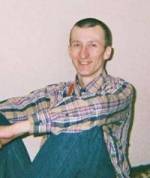Ukrainian Citizens and Russia’s Political Prisoners


Oleg Sentsov Oleksandr Kolchenko
In a letter otherwise devoid of real content*, Russia’s Prosecutor General has inadvertently admitted that Oleg Sentsov and three other Crimean opponents of Russia’s annexation of the Crimea are Ukrainian citizens. Since all have been held in Russian detention since May on spurious ‘terrorism’ charges with Russia trying to make them Russian citizens, the admission is important. It came in a formal fob-off to Ukrainian MP Oleksandr Bryhynets who hopes that the Prosecutor General’s words can be used by the defence. As reported here, the attempts to claim that Oleg Sentsov had ‘automatically become a Russian citizen’ by not formally indicating his wish to remain a Ukrainian national at a Crimean passport office are especially cynical given that Sentsov has been in Russian detention since May.
In the following the fact that two men - Oleg Sentsov, 39-year-old world-renowned film director and Oleksandr Kolchenko, a 23-year-old civic activist - are referred to as political prisoners is linked only to the specific position taken by the other two - Gennady Afanasyev and Oleksy Chirniy, and in no way suggests that the latter are guilty of the bizarre ‘terrorist plot’ charges which the Russian FSB [Security Service] have laid against all four Crimeans,
Due to a change in Russian legislation, the trials of Crimean political prisoners Sentsov and Kolchenko are likely to be heard by a military tribunal from January 2015. The men have already been in detention for six months in conditions that Sentsov says, have changed little from those in Stalin’s Russia.
In an interview for Open Russia, Sentsov explained that he had been in a corner cell for over 3 months, with no daylight. He believes that not one of the 25 letters he has written have been sent to the addressees. He says that he gets letters asking questions that show that the person has not seen the letter Sentsov wrote. “Yet nobody has ever informed me that my letters were subjected to censorship and not sent. I’ve just reading ‘Children of the Arbat’ [Rybakov’s novel about the 1930s] and notice that since that time the conditions in prison are little changed.”
Asked about his expectations of the trial, Sentsov’s answer is laconic: “In Russia there are acquittals in 0.3% of cases”.
As for writing screenplays, he writes in a notebook, but points out that his mood and state varies. This, he stresses, does not have any impact on his testimony or his attitude to the case. “When they carried out a psychological assessment, the doctors wrote in their conclusions that “neither the charges nor his detention have had impact on Sentsov’s psychological state”.
Oleg Sentsov’s statements in court have been marked by the same unwavering courage and integrity. In the middle of July, Sentsov stated: “I was never a member of “Right Sector” and did not organize any terrorist groups and terrorist acts in Crimea. I consider May 9 [Victory Day] an important day for any Slav and monuments linked with that day are untouchable. I therefore consider the allegation that I was attempting to blow these monuments not just unfounded, but insulting.
I am not guilty of organizing the impugned crimes, I consider the case fabricated and political because it is based on the testimony of two suspects which was first extracted out of them under torture, and now they can’t retract the allegations, and have been promised short sentences. They used torture against me also. I wasn’t arrested on May 11, but on May 10, and before the official interrogations in the SBU building in Simferopol they tortured, beat and humiliated me to extract a confession and testimony against the leaders of EuroMaidan and Ukraine, claiming that they had ordered these crimes. After I refused, they told me that I would be called the organizer of these crimes in court and that I’d face more serious charges. “
“I also wish to protest against the attempts to deprive me of Ukrainian citizenship. I have always been and remain a citizen of Ukraine. I do not recognize the Russian Federation’s annexation and military seizure of the Crimea. I consider any agreements made by the illegitimate government of the Crimea with the Russian Federation invalid. I am no serf to be passed over together with the land. I have not written any applications to take on Russian citizenship and reject my Ukrainian citizenship. “
Sentsov also suggested that the ‘assessment’ had been partly in order to introduce items that could later be presented as ‘evidence’ since the case otherwise is based totally on the testimony of two people.
As reported, four Crimeans, all known for their peaceful opposition to Russia’s annexation of the Crimea, were arrested at different times in May 2014. The arrests were all after the alleged terrorist acts were supposed to have taken place. The charges are of planning major terrorism on May 9, with items of infrastructure targeted. Nothing of the kind took place. The prosecution has however included two cases where Molotov cocktails were thrown at the offices of United Russia and another party.
Ukrainian film director Oleg Sentsov and left-wing civic activist Oleksandr Kolchenko have consistently denied all charges and have both said that they were subjected to torture in the Simferopol FSB offices before being taken, against their will, to Moscow.
The other two men – Gennady Afanasyev and Oleksy Chirniy – have ‘confessed’, with the testimony claiming that Sentsov was the mastermind behind an ultra-nationalist ‘Right Sector’ plot.
The story line for this first Crimean terrorist show trial was entirely predictable given that the organization Right Sector has been consistently demonized by the Russian media and Kremlin. Plausibility was ignored by the investigators, but remains a major sticking point. There is no evidence whatsoever in Sentsov’s case of any connection with Right Sector. Kolchenko, as a left-wing anarchist, would have also wanted nothing to do with a far-right movement.
The case is teeming with other discrepancies, and calls for the men’s release have come from Amnesty International, world-renowned film producers, international bodies and western governments.





